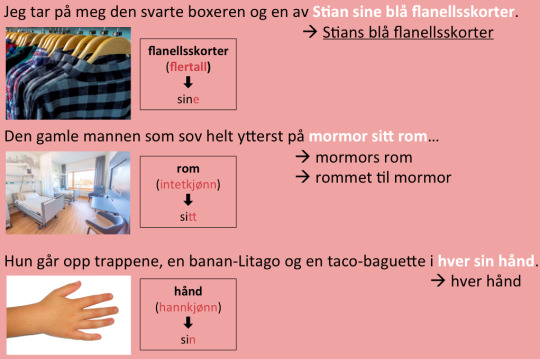#der dativ ist dem genitiv sein tod
Explore tagged Tumblr posts
Text
Der Tat ihr Ort: Der Saar ihre Brücken
Das fleißige Lieschen
Dem Wald sein Herr
Der Schlange ihr Herz
Der Erde ihre Kälte
Dem Geld sein Fluch
153 notes
·
View notes
Text
ah yes......
Eine Maus / mehrere Mäuse
Die Maus / Die Mäuse = NOMINATIV
Der Maus / Der Mäuse = GENITIV
Der Maus / Den Mäusen = DATIV
Die Maus / Die Mäuse = AKKUSATIV
funny how all of this translates to
the mouse / the mice 🫠
no one asked for this, hahah

DIE MAUS!!!!!
(Cutie little thing)
#nun ja#die deutsche Sprache muss man erstmal zu schätzen wissen#ich tue es schon#ich mein... wer liest -in seiner Freizeit- schon ✨Der Genitiv ist dem Dativ sein Tod✨#(das Buch)#vor allem wenn Ferien sind 😳#is 'ne Empfehlung#German stuff
16 notes
·
View notes
Text
Der Dativ ist dem Genitiv sein Tod. Reblogge diesen Post um ihn schneller sterben zu lassen
8 notes
·
View notes
Note
Also, minor point, but while "Provinz von Ihrer (...) Republik" is technically correct and in modern use perhaps more common, "Provinz Ihrer (...) Republik" is classier, since the former is a Dativ phrase, associated with lower socio-economic background, while the latter is a Genitiv phrase, which until recently was considered the only correct phrasing. "Der Dativ ist dem Genitiv sein Tod".
Your German is impressive, mind you. I know you live here, but nevertheless.
Yeah, I tend to avoid the genitive bc I am shaky on inflections and bc the von-dative is closer to English.
4 notes
·
View notes
Note
hi nasty! idk if you remember but a few months ago I told you how I was learning German in a class and it was hard. so anyways the reason that I even chose that language is because my boyfriend and his family speak German. So last week it was thanksgiving and they don’t really care about that because they said there is no thanksgiving in Germany but I still wanted to have a get together. So I made some desserts and me and my boyfriend go to his family’s house and I tried to speak to them in German and I said the wrong thing and everyone laughed at me and I’m sad about it :( I know I’m being over dramatic but now I feel like there’s no point to even continuing learning because the whole point was for them!! anyways sorry for rambling about this to you tldr: German is hard :(((
Hi!! Yes!! Of course I remember you!!
First of all, I wanna apologize because that is honestly really, really rude. German is really hard and the native speakers know this (see books like 'Der Dativ ist dem Genitiv sein Tod' and all sorts of jokes and memes) so to make fun of someone who is learning baffles me. Second, you definitely have guts - my last ltr boyfriend's family spoke Spanish at home and in all the years we were together I was too chicken to learn the language because I was scared of fucking it up - it's always hard to muster up the courage to start talking in front of native speakers. I can't imagine how humiliated you feel right now, I'm honestly so sorry :( I wish I could give you a hug right now. Of course I wasn't there and all but I hope your boyfriend has a talk with them/tells them it was rude. "Wie du mir, so ich dir" is a thing in German, too. It's really unacceptable behavior. If you feel like giving up - I hope you don't but I can really understand it. But German is also a fun and whimsical language - and the countries it's spoken in are beautiful and people are stoked when you tell them you've been studying, usually!! Here, let me give you some YouTube links -- like a fairy tale cartoon I grew up with, or one of the bands that was popular in my youth, a popular non-fiction kid's show, and of course, Bernd das Brot. Maybe these can cheer you up a little, tut mir echt leid 😢💕
2 notes
·
View notes
Text
tagged by @ailec-12, thanks you’ll have to read my rambling now xD
Currently reading: well… not much I’m trying to write some currently and spend 28 weeks a year studying (hopefully only till next summer xD) although I have been trying to read “der Dativ ist dem Genitiv sein Tod” for a while… just usually either lack time or concentration
Next TBR: No idea….
Last song: oh no that’s too embarrassing even for me… lets put it that way got a godson who’s birthday was celebrated and well… he wished for the silly version of a Christmas song instead of a birthday song…
Last movie: fantastic four
Last show: the worst witch (well one episode xD)
Next on my watch list: nothing what ever irks me when I have time to watch something
Currently working on: well… studying, job, being happy… guess life just in generak
Current obsession: they’re kind of interchangeable right now… anything I was into since I was like 12…
Current fic: well trying to keep it to my wip’s… if I focuse on them I might actually get somewhere… and I’ve got a few marked, none of them are updated regularly but I’m happy whenever there is one
Favourite colour: one’s supposed to have one?
Sweet/savoury/spicy: please don’t make me choose xD
0 notes
Text
Oh actually I got something! I was assigned "Der Dativ ist dem Genitiv sein Tod" in a German as a First Language class. Did not expect to get a book in this format (a regular newspaper column turned book) in a class that was mainly about grammar. I quite enjoyed the read but I don't subscribe to the prescriptivism of it all.
Book Discussion
what are some of the most unconventional books you have been assigned to read for classes? or not even books, but tv shows, movies etc. works that you were surprised to see on the syllabus or even a class on the specific genre in general. works that people around you were surprised to learn you were reading for class?
64 notes
·
View notes
Text
Looking at german neopronouns and it feel like I'm learning german grammar again.
But it is kind of interesting where some pronouns come from. Like there are multiple ones taking from other languages.
Including "they" like, not even changed and two actually changed versions, "dey" and "sey".
I was technically only looking if someone has made a complete german version of "fae". The answer is yes.
Also on other genderneutral terms, I just really like the form that goes "das Freundy". Because 1. das, already existing neutral article, while most other forms use new articles. And 2. Freundy just sounds so funny. Not even "dej Freundu" tops that. Which is the second best, because it also isn't just like a middle thing between masculine and feminine.
#der dativ ist dem genitiv sein tod#i am a native german speaker btw#i was just really glad when i didn't have to remember all those terms anymore#also still have swirling around my mind every so often#which is annoying#-isaac
4 notes
·
View notes
Note
im opposite to you, english is my native language and german prepostions kill me!!
aaah! but well german in itself is the devil so! don’t worry even germans suck at their grammar
#Anonymous#answered#i straight up wrote a 6 (worst grade) in 6th grade like!! i was that kind of bad#i got better afterwards#but i literally... just didn't know what my teacher wanted#der dativ ist dem genitiv sein tod
4 notes
·
View notes
Text
Garpegenitiv - a possessive construct in Norwegian with roots in German
While reading the novel En sånn rød amerikansk scooter by Molly Øxnevad, I noticed a grammatical construction for possessives that I hadn't formally learned in my Norwegian studies which reminded me of a possessive construction used in German. So I decided to investigate and want to share my newfound knowledge of what's referred to as the garpegenitiv.
1) Example sentences from the novel
Below are three (parts of) sentences from the novel with the garpegenitiv possessive construction highlighted in bold. Underneath is an possessive construction with the same meaning.

Jeg tar på meg den svarte boxeren og en av Stian sine blå flanellsskorter. ➡️ Stians blå flanellsskorter
Den gamle mannen som sov helt ytterst på mormor sitt rom… ➡️ rommet til mormor / mormors rom
Hanne går opp trappene, en banan-Litago og en taco-baguette i hver sin hånd. ➡️ hver hånd
The construction is ✨ owner + sin/si/sitt/sine + owned object ✨
Without having studied this possessive construction previously, it still made sense to me because of its German equivalent...
2) German's dem-sein possessive construct
Let's start with this basic example: the man's hat
the man = der Mann the hat = der Hut
Using the genitive case to show possession gives you: der Hut des Mannes (the hat - the man's) ➡️ des Mannes is the genitive form of der Mann and therefore shows that the man possesses the hat
Using the dem-sein possessive construct: dem Mann sein Hut (the man - his - hat) ➡️ dem Mann is the dative form of der Mann, sein is the third person male singular "his" and therefore shows the man possesses the hat
⚠️ Option number two is not considered proper grammar in German Standard German, but is common in several German dialects (fun fact: several German dialects don't have a genitive form at all!) as well as in colloquial speech. I remember one time as a teen speaking to one of my mom's friends, a German teacher from Berlin, using this construction - she looked at me in horror 🤣
This construction is deliberately used as a pun in the title of Der Dativ ist dem Genitiv sein Tod (lit. "The dative is to the genitive its death instead" - "The dative is the genitive's death"), a popular series of books by Bastian Sick that deal with clumsy and often contended use of the German language.
Some other examples of the genitive construct vs. dem-sein construct:
das Haus des Mannes - dem Mann sein Haus
die Handtasche der Frau - der Frau ihre Handtasche
das Zimmer der Oma - der Oma ihr Zimmer
Florians Fahrrad - dem Florian sein Fahrrad
3) Use of the garpegenitiv in Norwegian
Norwegian has its own equivalent of the German dem-sein construct (called "His genitive" in English). You can see how the examples from the novel follow a similar construction in both Norwegian and German:

✨ owner + sin/si/sitt/sine + owned object ✨
The owner does not have to be a person.
Which form of sin to use depends in the number and gender of the owned object.
Hannkjønns bøyningsform: Anna sin bil er blå.
Hunkjønns bøyningsform: "Den gamle kvinnen si helse er dårlig.
Intetkjønns bøyningsform: Marie og Per sitt hus ble nettopp solgt.
Flertalls bøyningsform: Firmaet sine ansatte er ganske produktive.
4) History of the garpegenitiv in Norway
The garpegenetiv began being used in Norway around 1500, becoming common in the Bergen dialect starting in the 16th century and likely spreading from there. It is thought to have come from northern Germany with the Hanseatic League. In fact, garp was a word meaning "braggart"/"loudmouth" that was used to refer to the German merchants in Norway and Sweden in the Middle Ages 😅
Today, the garpegenetiv is most widespread in Western and Northern Norway and dialects spoken there. In written Norwegian, its usage has increased over the years. Språkrådet (The Language Council of Norway) has fully accepted it as correct Norwegian, and NRK also uses it.
It has its share of opponents who believe it to be bad grammar (similarly to the dem-sein construct in German, also considered "wrong"). For example, in 2004 journalist Per Egil Hegge described its usage in his Aftenposten column as childish and incorrect: "På barnespråk kan man ofte også høre «det er min sin spade». Garpegenitiv regnes ikke som korrekt norsk, og det bør den vel heller ikke." Also, proponents of basing Nynorsk on Old Norse have not always been willing to accept the form, since it was introduced to the Norwegian language.
#norwegian#norwegian langblr#norwegian grammar#norsk#german#yet another post comparing norwegian and german#linguistics
11 notes
·
View notes
Text
Since I know I have some linguistics nerds among my followers, let me rant about something that annoys me in certain users of the German language: The weird and nonsensical non-discourse around the word “vorprogrammieren”.
“Vorprogrammieren” literally translates as “preprogrammed”, but is most often used to mean something like “inevitable”. Like, “Ein Konflikt ist vorprogrammiert” - “A conflict is inevitable”. So far, so good.
Now, there are a number of people, most notably Bastian Sick, who take issue with this word. Bastian Sick is a writer who is known for language columns and books, most notably “Der Dativ ist dem Genitiv sein Tod”, named after a common use of language patterns that goes against standard practice. He used to be much more popular 10-15 years ago, but his influence lives on.
In his works, he speaks in humorous form about ways that people use German “incorrectly”, in his view. He sees himself as something of a “language protector”, and frequently decries language that is at odds with the official standard German. He complains about neologisms, anglicisms, translated use of English sentence structures or phrases and so on, and about using grammar incorrectly, like the Dativ and Genitiv thing that I will absolutely not explain. And of course, sometimes he just complains about things that don’t hurt anyone, like “PIN Nummer” (same as “PIN number” in English).
There is a lot of debate about this, at least in academic circles. He does allow for local dialects and variations, but he thinks that all new and non-standard uses of language are bad and should be stopped; that there is a “correct” way to speak German. That’s a very reductive and nonsensical view of language, and frankly just plain unnecessary. And, of course, this view finds a lot of allies among the very conservative crowd, who use “the decline of our language” as yet another reason why supposedly everything in Germany is going downhill and we should stop all this liberal nonsense.
Anyway, with that context out of the way, let’s look at “vorprogrammiert”. Bastian Sick argues that this is a pleonasm. You always program something in advance, so adding the “vor” prefix here, meaning “pre”, is just useless filler. Therefore we shouldn’t use that; we should just say “programmiert”, as in “Konflikt ist programmiert”.
I am not convinced that this is actually a pleonasm, because I think there is at least something like “programming during an event”, especially if we’re talking about e.g. event planning instead of writing computer code.
But that’s not really important. The important part is that “vorprogrammiert” is a well established part of the German language. Yes, it is one that only ever appears in news articles, just like the “well informed circles”, but it’s one that everyone knows.
On the other hand, using “programmiert” to mean “inevitable” is not at all well established. It’s really weird. “Konflikt ist programmiert” just sounds wrong to me. Using it in this way is, in my opinion, a kind of neologism, the thing that Bastian Sick and the people like him hate the most.
If people had decided independently to use “programmiert” instead of “vorprogrammiert”, that would be okay by me. Language changes and we all have to deal with it. But since this use of “programmiert” appeared (as far as I can tell) first and the most in the magazine where Bastian Sick used to publish his columns, I suspect that most people who do so are under the mistaken impression that they are writing extra correctly; the way it’s meant to be written.
Bastian Sick’s day in the timeline has ended, and you see “vorprogrammiert” reclaim more and more of its former rightful ground. But every now and then I still see someone use the “programmiert”, and it always hurts, because this was the wrong result of a battle that wasn’t even worth having in the first place.
Weirdly enough, these “vorprogrammiert” haters seem to never have realized that they can just write “unvermeidbar”, literally “inevitable”, or “absehbar” (”foreseeable”, “to be expected”), and neatly sidestep the whole issue.
Anyway, that’s something that’s been bothering me for at least fifteen years now, and I wanted to get it off my chest.
41 notes
·
View notes
Note
at least it's tipsy you who can't write german, sober me does not know what german expressions are - it's all Subjekt, Prädikat, Objekt, Punkt - and that's on a good day
and don't forget der genitiv ist dem dativ sein tod and what's up with that whole upper case/ lower case thing
#our language is fucked up.#and the fact that we talk in english proves that#haask#felipedrughoebitch
6 notes
·
View notes
Photo









What I read in March
Maschinen wie Ich by Ian McEwan
Der Dativ ist dem Genitiv sein Tod by Bastian Sick
Die Eishexe by Camilla Läckberg
Der Ball spielende Hund by Agatha Christie
Die Eisprinzessin schläft by Camilla Läckberg
Das Feld by Robert Seethaler
Ich bins, Kitty by Mirjam Pressler
Die Känguru Chroniken by Marc-Uwe Kling
Handbuch für Zeitreisende by Kathrin Passig
Again a lot of books and again only audiobooks. I have a lot of physical books on my imediate tbr but I find it hard to make time to sit down for them. As I already said, audiobooks are much more pratical, as I can listen to them anywhere.
Tommorow is my first week working fulltime, meaning 40 hours/week, 8,5 hours/day. So far I had been working 30 hours/week since September and 35 hours/week since November. I´m really happy to earn more but I expect to be more tired than usual, working one hour more each day - so no big reading goals for april, just whatever is possible/feasible without stressing myself out. :)
5 notes
·
View notes
Text
Wegen *der* vielen Linsen.
Warum konnte die Suppe so gut sehen?
Wegen den vielen Linsen.
59 notes
·
View notes
Text
Week 5 | 2019年7月21日
This week has been too busy again. I didn’t even manage all my Anki reviews. That’s why I reduced the number of new words for Japanese as that’s the deck I neglected most (apart from the Chinese one which I still haven’t really started).
On a more positive note, after five weeks I now know how much time I usually spend on each task. That makes planning a lot easier.
And even more positive: I pretty much stopped procrastinating! I may play a game or two to relax, especially in the evening, but that’s it.
Ελληνικά
reviewed Assimil lessons 26-28
started lesson 3 of Ελληνική γλώσσα
listened to some Greek radio
not study-related: went to a Greek restaurant and had some κολοκυθοκεφτέδες, μπιφτέκια, κριθαράκι and a πολύ νόστιμο αναψυκτικό with basil, lemon and elderflower
中文
some Memrise only (I realized that the Chinese names of the months are rather unimaginitive, but that makes them pretty easy xD ) - now at 100/442 words)
日本語
finished the lesson on せっかく
transcribed a short podcast (level JLPT N5) - There were two words I didn’t understand and I didn’t know how to write several kanji, but overall I’m pleased. After all, I haven’t done anything like that for ages.
Deutsch
continued Der Dativ ist dem Genitiv sein Tod (now at page 301/750)
* * * * *
Plans for next week
Greek: review Assimil lessons 29-31, finish Ελληνική γλώσσα lesson 3
Japanese: do another transcription, one diary entry
Chinese: (same as last week) Contemporary Chinese Lesson 4, reach 150/442 words on the Memrise course
German: reach page 355 of Der Dativ ist dem Genitiv sein Tod
- Meta -
2 notes
·
View notes
Note
Ohh, what's the book you've started a few times? And why didn't you keep reading, just lack of time or something else?
I'm actually very curious, so I'm gonna ask a few more questions if you don't mind:
1) How did rereading Harry Potter feel like?
2) What fandoms did you read fanfiction for?
3) Any fic recs you'd like to share? =)
Okay… “der Dativ ist dem Genitiv sein Tod” it’s actually a German grammar book but in a funny way… yeah it’s a combination between a lack of time and concentration… but it is pretty funny as far as I came so yeah it will eventually be read… just my brain needs a little more time and rest to be able to do that and not the constant challenge and 6 to 7 day week xD
1.) As for rereading Harry Potter… well I can officially say as an Adult I hated Dumbledore by his first appearance… when I first read the books that took a few years… not sure anymore but think it was somewhere between 4 and 5 when I started to question if his ends really justified the means… and well I came to the conclusion they don’t not when he never truly actively seeked true support someone else’s insight or even tried to solve it himself…
add to that as a headmaster ignoring bullying just because the victim is in the house You despise and well being completely blind to obvious abuse… in so many cases… so in short he dropped down in my like scale even further… McGonagalls throne lost a few pieces too… and Snape well that character has my deepest respect now…
2.) hm… oh let me see… Harry potter (duh) and thanks for the chance to nagg you as I would like to read some more Harry Potter fan-fiction :-p
Supergirl, the owl house (started watching that when I was sick and well it’s damn open minded, so kinda cool) some “Bones” thought it’s ancient stuff there just never got to finish it… and thats it I think…
3.) sure : https://archiveofourown.org/works/22185070/chapters/52964074
xD
oh you meant ones that you don’t have to write? Hm… let me see…https://archiveofourown.org/works/30163233
What big claws (to protect you with, my dear) its an owl house thing
3 notes
·
View notes